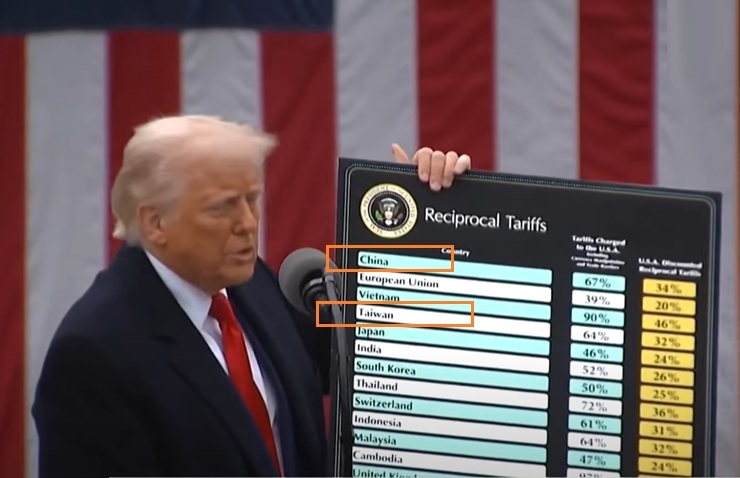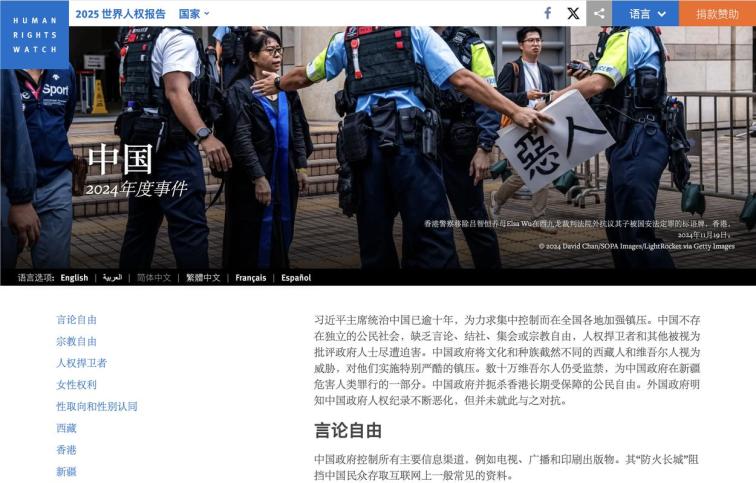Elderly residents in rural China receive pensions of just over 100 yuan a month—barely enough to buy meat. A netizen who filmed related videos asked, “If our parents live like this, what meaning does our growing up have?” These videos, however, were removed because they did not “tell a good China story” as mandated by authorities. (Video screenshots)
[People News] Recently, the Chinese Communist Party (CCP) announced a 2% overall increase in retirement pensions for 2025—the lowest increase in history. The announcement sparked a wave of criticism and sarcasm across online comment sections. Many citizens feel that the 2% increase means little for elderly people in rural areas—just enough to “buy a few extra eggs.” More importantly, the backlash highlights deeper issues: systemic inequality and the misuse of pension funds, which have led to significant social unrest.
The 2% pension hike immediately drew widespread public attention and debate. Many pointed out that this increase is far lower than in previous years. Some joked that the extra pension wouldn’t even cover hospital bills.
Weibo user “財宇宇” noted that pensions must be adjusted upward because the cost of living—including food and healthcare—is rising. Without such increases, the elderly would struggle to get by, and their standard of living would decline.
It’s worth noting that since 2005, China’s pension system has seen 21 consecutive annual increases. However, the rate of increase has drastically declined—from 6.5% in 2016 down to 2% in 2025. This downward curve mirrors the country’s slowing GDP and wage growth.
Amid an economic downturn, people are increasingly asking: Where does the pension money come from? Young workers, who make up the largest contributing group, are voicing growing frustration.
Blogger “風流雜談” explained that pensions come from a central pooled fund. The current reality is that the number of retirees is rising, lifespans are increasing, while the younger, working population is shrinking, putting stress on the system’s dependency ratio.
A 2% pension increase means opening the fund’s “valve” even wider. The only solution is to make young people “step on the gas” by raising their contribution base and rate. But this puts further pressure on young people who are already burdened with mortgages, raising children, and “996” work schedules. Many ask: “I’m paying to support today’s elderly—who will support me when I’m old? Will there still be enough money left in the fund?” This reveals a deep anxiety about the future and serves as an outlet for current frustrations.
In fact, in some cases, younger workers are earning less than the pensions their retired parents receive in major cities, causing even more resentment.
The situation is especially painful for the so-called “small-town test takers”—young people from rural or small-town backgrounds who study hard, gain entrance to top universities, and land jobs in big cities. Despite paying large sums into the pension system, they find their contributions have no direct benefit for their parents back home, who receive only meagre pensions. And they feel powerless to help them.
Weibo user “我本該比任何人都溫柔” (I Should Be Kinder Than Anyone) bluntly wrote: “My parents wouldn’t dare pressure me to get married—they’re already afraid I won’t support them in old age. If their kids don’t help, they’ll get only 100 yuan a month. What can you do with that? When you’re about to starve, things like family honour or passing on the family name don’t matter.” This reflects how deeply concerned young people are about the cost of elderly care, so much so that it overrides traditional family values.
The recent pension increase has also widened inequality, particularly the gap between those within the government system (inside “the system”) and those outside it, as well as between urban and rural areas.
One trending online topic recently summed it up: "Some retirees can now afford an extra chicken, others just a chicken leg, but most low-income elderly in rural areas are lucky to get three eggs.”
The controversy centres on the fact that rural residents receive just 100–300 yuan per month. A 2% increase adds only 2–6 yuan, enough to buy a few eggs. Meanwhile, retirees in urban areas, especially those from high-paying government jobs, get much more. For instance, a 91-year-old retired teacher in Shanghai receives 9,000 yuan a month; a 2% increase means over 100 yuan more—enough for a full chicken or more. This proportional increase approach further widens the pension gap.
Blogger “風流雜談” attributes this unfairness to two core issues: 1. Local Discretion: Central policies like “flat-rate adjustments, linked adjustments, and appropriate tilt” are vague, allowing local governments leeway in implementation. He likened it to: “The central government treats everyone, but at the local level, those with long spoons scoop the meat, and the rest only get soup.” This flexibility and lack of transparency fuel public distrust over fairness.
2. The Two-Tier System: China has long maintained a dual-track pension system: one for government/enterprise workers (“within the system”) and another for private sector workers (“outside the system”). This institutional divide is the root of widespread discontent. For example, a retired government worker might receive 10,000 yuan monthly and get a 200-yuan raise, while a retired factory worker gets 3,000 yuan and only a 60-yuan raise—widening the original 7,000-yuan gap to 7,100 yuan.
This systemic inequality is shaping societal values. The “civil servant craze” (考公熱) continues to rise as more young people seek stable, government-backed jobs over riskier opportunities in the open market.
Even more alarming are reports of illegal misuse of pension funds in financially strained regions. The CCP’s National Audit Office recently published an audit revealing:
In 13 provinces last year, a total of 40.6 billion yuan in pension and welfare funds were illegally diverted to cover basic livelihood, salaries, operations, or to repay government debt (“Three Guarantees” spending).
In 25 provinces, 28,300 people used fake medical records or altered documents to fraudulently claim a total of 519 million yuan in pensions. One shocking case: an employee of the Pu County CDC in Shanxi allegedly started working at age 1 and retired at 22. This fraudulent claim passed multiple levels of review and resulted in 690,000 yuan in illegitimate pension payouts, while the individual continued working elsewhere and drawing a salary.
These abuses intensify young people’s fears that the pension fund could be depleted—possibly by 2035, according to projections. Weibo user “不吃辣椒不蘸醬” said: “Seeing hundreds of billions of yuan embezzled from pension funds makes me extremely worried about the contributions I’m making now.”
Many young workers now contribute heavily to pensions that support other people’s parents, while their own parents receive almost nothing. This disillusionment is causing a rise in young people choosing to stop contributing altogether, further eroding trust in the system.
Blogger “風流雜談” summed up the 2% pension hike as a trigger for widespread anxiety: fairness, financial pressure, intergenerational tension, and identity divides. Like a prism, it reflects the bizarre contradictions of China’s social transition: For retirees, pensions are about survival. For young people, they represent a debt to the future. For civil servants, they’re an extra bonus. For private workers and farmers, they’re a drop in the bucket. To truly fix this, adjusting the percentage increase isn’t enough—it’s like pouring hot water on a boiling pot. The key lies in merging the dual-track pension system into one and ensuring sustainable, equitable funding mechanisms. Only when pensions are fairly distributed based on contribution, not job type or status, can society achieve true stability and peace.
The issue has also drawn attention from overseas Chinese, with many commenting: “Looks like the CCP doesn’t think the pension fund is being drained fast enough.” “They preach fairness but secretly siphon resources; say no to overwork but raise taxes to pay civil servants; talk about shared destiny while living off taxpayer-funded privilege.” “If your physical body remains in China, you’ll never escape being harvested.” “Either erupt in rage, or perish in silence.” “Future benefits for the young will only worsen—the best-case scenario is that the government doesn’t go bankrupt.” “Did the ‘senior comrades’ not grab enough when they were working? Why are they still competing for more in retirement?”










News magazine bootstrap themes!
I like this themes, fast loading and look profesional
Thank you Carlos!
You're welcome!
Please support me with give positive rating!
Yes Sure!